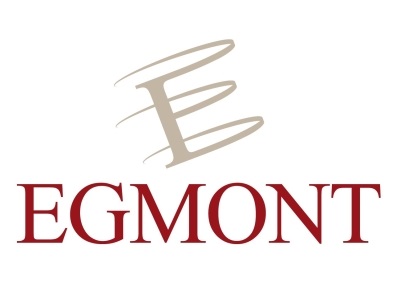(26 January, 2024 – Egmont Institute)
SPEAKER:
- Joris Van Bladel : Senior Associate Fellow in the Europe in the World programme. Joris Van Bladel’s areas of expertise include Russian military and strategic culture, the Russian ‘soldiers question’, security & defense, (asymmetric) threat analysis, and strategic forecasting.
The aim of this conference, hosted by the Egmont Institute, was to unravel the intricate dynamics of Russia’s engagement in Ukraine, probing into the multifaceted interplay of war, politics, and public opinion. The conference delved into the sustainability of Russia’s military actions, explored the internal dysfunctions of its army, and scrutinized the societal support foundation for President Putin’s leadership.
The Dynamics of Russia’s Engagement in Ukraine
Joris Van Bladel – Senior Associate Fellow in the Europe in the World programme at Egmont Institute – started by addressing a perplexing situation: how can such a dysfunctional army sustain its military assault on Ukraine? Understanding this intricate situation is inherently difficult due to the lack of transparency in Russia’s presentation, making it challenging to grasp the true societal dynamics. However, as emphasized by Joris Van Bladel, a key element in comprehending Russia’s sustainability in Ukraine involves examining the level of support for President Putin within society. To dissect this, the exploration involves scrutinizing public opinion surveys. Opinion agencies, including Levada (independent), VTsiom, FOM (public), and FSO for the Kremlin (well-funded), play a crucial role. President Putin places significant importance on public opinion, viewing it as the foundation of his legitimacy. However, interpreting these survey results comes with challenges, including non-response bias (when subjects refuse to take part in a study) and desirability bias (responses influenced by certain social norms).
Digging deeper into these surveys, the financial support from the Kremlin for FSO campaigns revealed a strategic instrumentalization of war by Putin to strengthen public opinion. Joris Van Bladel suggested that the initiation of the 2022 war aimed at enhancing trust and legitimacy in the eyes of the public. Exploring an important example, the Crimean Spring of 2014-2017 portrayed a period of euphoria and high support for the regime. According to Joris Van Bladel, war became a tool to elevate trust not only in the army but also in the government and Putin, showcasing the manipulative use of conflict. Lastly, a crucial insight into why public opinion surveys carry significant weight in understanding Russian society, despite biases, lies in a critical moment – the announcement of mobilization in September 2022. According to the speaker, this event coincided with a decrease in support for the regime, spotlighting mobilization as a vulnerability for Putin. A paradox emerges as the army gains the highest trust, yet there is reluctance to serve.
The Floating Mass in Russia
The surveys further unveil a paradoxical phenomenon where the same individuals express support for both escalating war efforts and pursuing a peace agreement. Coined as the conformist group, constituting more or less 65% of the population, this cohort is notable for its simultaneous endorsement of conflicting positions – war and peace. The broader population, on average, comprises 15% in favor of war, 70% as a floating mass, and 15% in favor of peace. This paradox is elucidated by the concepts of learned indifference and pragmatic cooperation, where people maintain a detached relationship with the state. In dictatorial contexts, social desirability takes a back seat as survival becomes the primary concern.
Indications of Change
Are there emerging signs of change? Recently, there has been a shift towards peace, yet the underlying conditions shaping this preference remain elusive in survey results. An anomaly in April 2023 captured our attention: since the onset of the war, there has been a surge in written inquiries to the president, primarily focusing on mobilization and military conditions. During a hospital visit in April 2023, Putin posed questions to ailing soldiers on television, offering meticulous responses to the crucial inquiries he had received from the public. This demonstrated his acute awareness of public sentiments and a deliberate effort to convey his concern.
In general, the floating mass, while not inherently opposed to war, increasingly expresses feelings of betrayal by the state. This sentiment is pivotal, signaling growing discontent and resistance against the regime. Noteworthy is the correlation between regions showing greater support for both war and the regime and those experiencing higher casualties. This correlation finds an explanation in economic contexts – poorer regions and individuals find economic comfort in military service. Supporting the war thus becomes a means of survival.
Demographic Challenges and Long-Term Strategies
Russia, grappling with demographic challenges and a significant decline in its young population, is motivated to pursue ambitious demographic initiatives. While not an immediate concern, the absence of young individuals for military service poses a substantial long-term issue. In response to this challenge, the Russian military strategy involves the naturalization of citizens, the imposition of mandatory military service, and the enlistment of prisoners and migrants. Additionally, there are challenges like the use of outdated war survival kits from World War II, avoidable casualties, a significantly distinct military culture, and a strong emphasis on a masculine ethical framework. According to the speaker, this contrasts with the fact that 20% of the population still supports war. Putin’s capability to rally this group, despite these obstacles, puts Ukraine in a precarious position.
Finally, it is crucial to understand, as pointed out by Joris Van Bladel, that we – the EU and the rest of the world – have limited influence on Russian affairs. Internal conflicts and opposition present the main challenges for Putin, and he is well aware of these factors, impacting both the war effort and the stability of the regime.
Link to the event: https://www.egmontinstitute.be/events/war-politics-and-public-opinion-probing-russias-societal-pulse/

